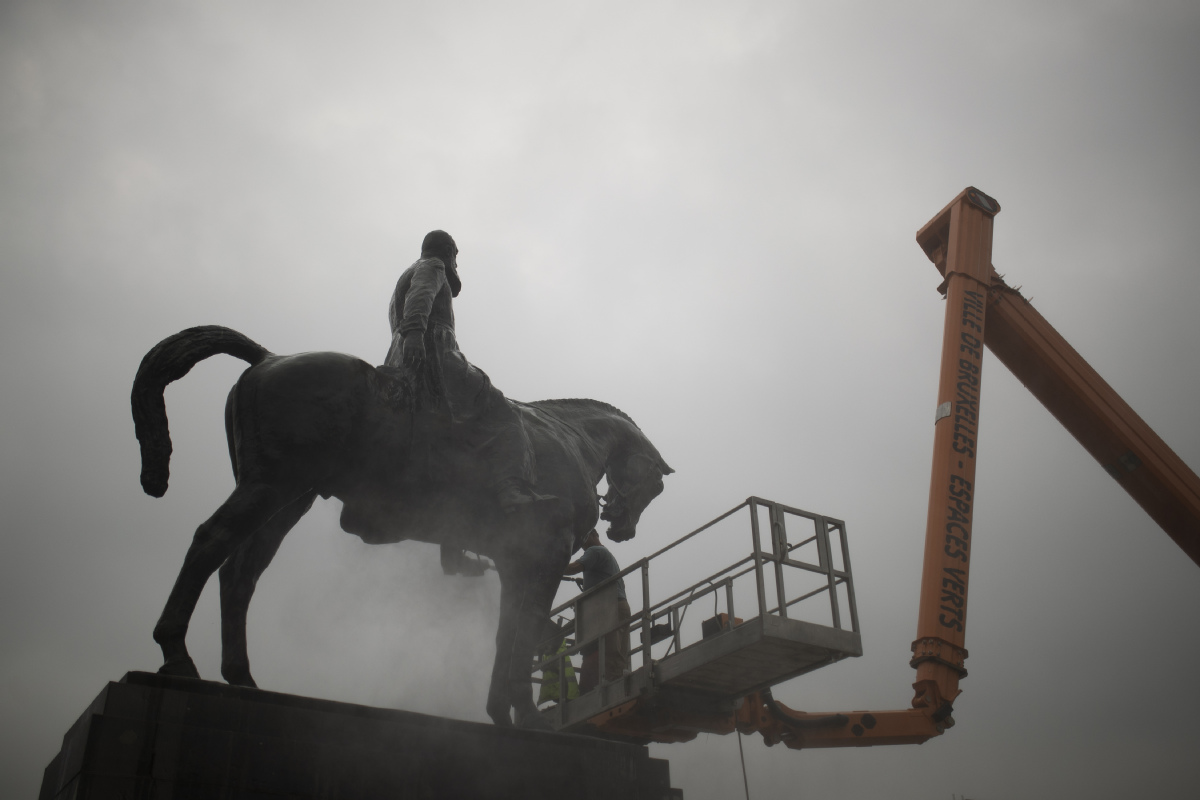Belgians take hard look at the colonial past


Leopold's ghost
Born on April 9, 1835, five years after Belgium's independence from the Netherlands, Leopold II became king in December 1865 on his father's death.
At the time, when major European powers had colonies in Africa and other parts of the world, the king, a cousin of Britain's Queen Victoria, sighed in French that Belgium was "petit pays, petits gens" ("small country, small people").
In 1879, he hired the Welsh-born explorer and journalist Henry Morton Stanley to represent him in Africa. For the next five years, Stanley traveled the Congo River Basin, setting up trading posts, building roads and persuading local chiefs, who were mostly illiterate, to sign treaties with Leopold II.
Through his public relations skills, the king persuaded the US and major European nations to recognize the area as his private fiefdom. He named the world's only private colony the Congo Free State, a place he never visited. US journalist and historian Adam Hochschild describes in his book King Leopold's Ghost: A Story of Greed, Terror and Heroism in Colonial Africa how the king embarked on an ultimately successful effort to make a vast fortune from the new possession.
For some years, ivory was a principal source of great wealth drawn from the new colony by Leopold and his associates.
By the early 1890s, natural rubber in the Central African rainforest had emerged as a new and lucrative source of wealth. Detachments of Leopold's 19,000-strong private army, known as Force Publique, would march into a village, hold the women hostage and force the men into the rainforest to gather a monthly quota of the commodity.
Hochschild writes, "As the price of rubber soared, the quotas increased, and as vines near a village were drained dry, men desperate to free their wives and daughters would have to walk days or weeks to find new vines to tap."
Forced labor was also used to operate other parts of the economy in the colony, from building roads to chopping wood for use in steamboat boilers.
The effects were devastating. Numerous female hostages starved, and many of the men harvesting rubber were worked to death, according to the book, which was made into a documentary.
In one particularly cruel practice aimed at preventing Congolese troops in Force Publique from wasting bullets or saving them for use in a mutiny, the soldiers had to present the severed hand of each rebel they killed to their white officers.
"Baskets of severed hands thus resulted from the expeditions against rebels. If a soldier fired at someone and missed, or used a bullet to shoot game, he then sometimes cut off the hand of a living victim to be able to show it to his officer," Hochschild writes.
After journalists' reports triggered an international outcry against Leopold's crimes in Africa, he was forced to relinquish his territory in 1908 to the Belgian government, which renamed it the Belgian Congo.
Leopold died the following year and was succeeded by his nephew, Albert I, as his only legitimate son, also named Leopold, had died in 1869 at age 9.
Hochschild's book also makes a brief mention of how Leopold II invested his Congolese profits in a railway in China in 1897-a clear reference to the Beijing-Hankou line. He viewed China in the same manner as the "magnificent African cake"-as a feast to be consumed, and he was just as ready to invite himself to the table.
While Leopold failed to realize many of his Chinese ambitions, many of the 540 workers brought from the country to labor on a Congolese railway in 1892 lost their lives.
Hochschild puts the Congolese death toll under Leopold at more than 10 million, based on population estimates from 1880 to 1920.






























